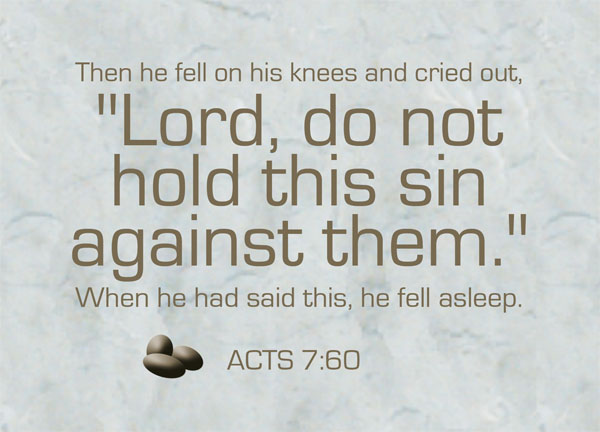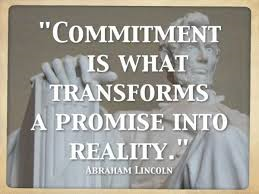Click here to return to Blog Post Intro
Stephen Knew What to Stand For (Acts 7:2-60)
Stephen—the first Christian martyr—earned great influence among the people (Acts 6:8). Fearing the loss of their own influence, Jewish religious leaders seized him and brought him before their council.
In his defense, Stephen displays an unwavering commitment to his convictions. In the face of authorities with the power to execute him, he stands and expresses what he knows to be true, both about Christ and the religious leaders’ stubborn hearts. This leads to his stoning (7:58-60). His straightforward manner leaves the religious leaders with no argument; they can only throw rocks. Yet, even this doesn’t shake him…
Where Did Stephen’s Commitment Come From?
Consider his words and attitude:
- He had the presence of God in his life (6:8, 15).
- He based his commitment on a biblical foundation (7:2-38).
- He saw the error of past thinking (7:39-41).
- He spotted the resistance of the religious leaders (7:51-53)
- He kept his eyes on Jesus, the truth (7:55).
- He maintained his perspective (7:60).
To develop commitment, we must understand…
- Commitment starts in the heart. Commitment precedes achievement. Look inside: where is your heart committed?
- Commitment is tested by action. Talk is cheap; action is expensive.
- Commitment opens the door for accomplishment. Once you commit yourself, all kinds of resources come your way to help you succeed.
- Commitment can be measured. Leaders must evaluate their calendars and checkbooks to measure their commitment.
- Commitment enables leaders to make decisions. Leaders must determine what’s worth dying for, then make that the basis for their decisions.
- Commitment flourishes with public accountability. Go public with your commitments; then you’ll have incentive to follow through.
Levels of Commitment
Jesus always related to people at the level of commitment they were ready to make. Note four levels of commitment in Jesus’ disciples:
Level One: Come and See (Curiosity – John 1:35-51)
At this stage, Jesus’ interaction is light and easy. When people are here, look for chemistry and faithfulness.
Level Two: Come and Follow (Commitment – Luke 5:1-11)
Jesus’ words now call for some commitment. The person is ready to be challenged. Look for hunger and teachability.
Level Three: Come and Surrender (Conviction – Mark 8:34-35)
This step is appropriate only after deep relationship and mutual trust have developed. Look for initiative and determination.
Level Four: Come and Multiply (Commissioned – Matthew 28:19-20)
Here, Jesus calls His men to reproduce what He did with them. Look for leadership and people skills.
Commitment moves past the mind and emotions and goes straight to the will. The ancient Chinese said that the will of a man is like a cart pulled by two horses: the mind and emotions. You must get both horses moving in the same direction to move the cart. Commitment results when your mind and emotions move forward, whatever the cost.




